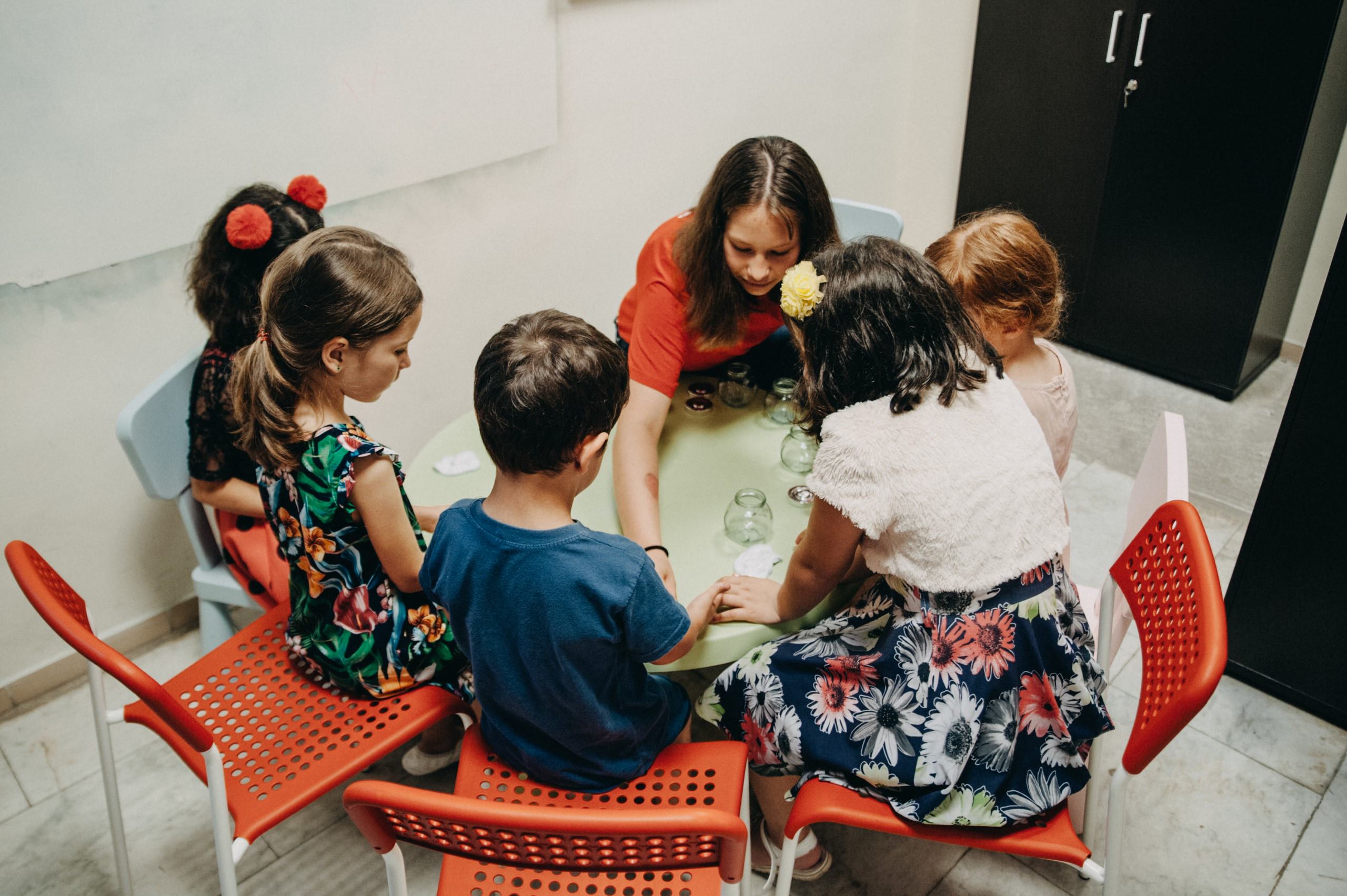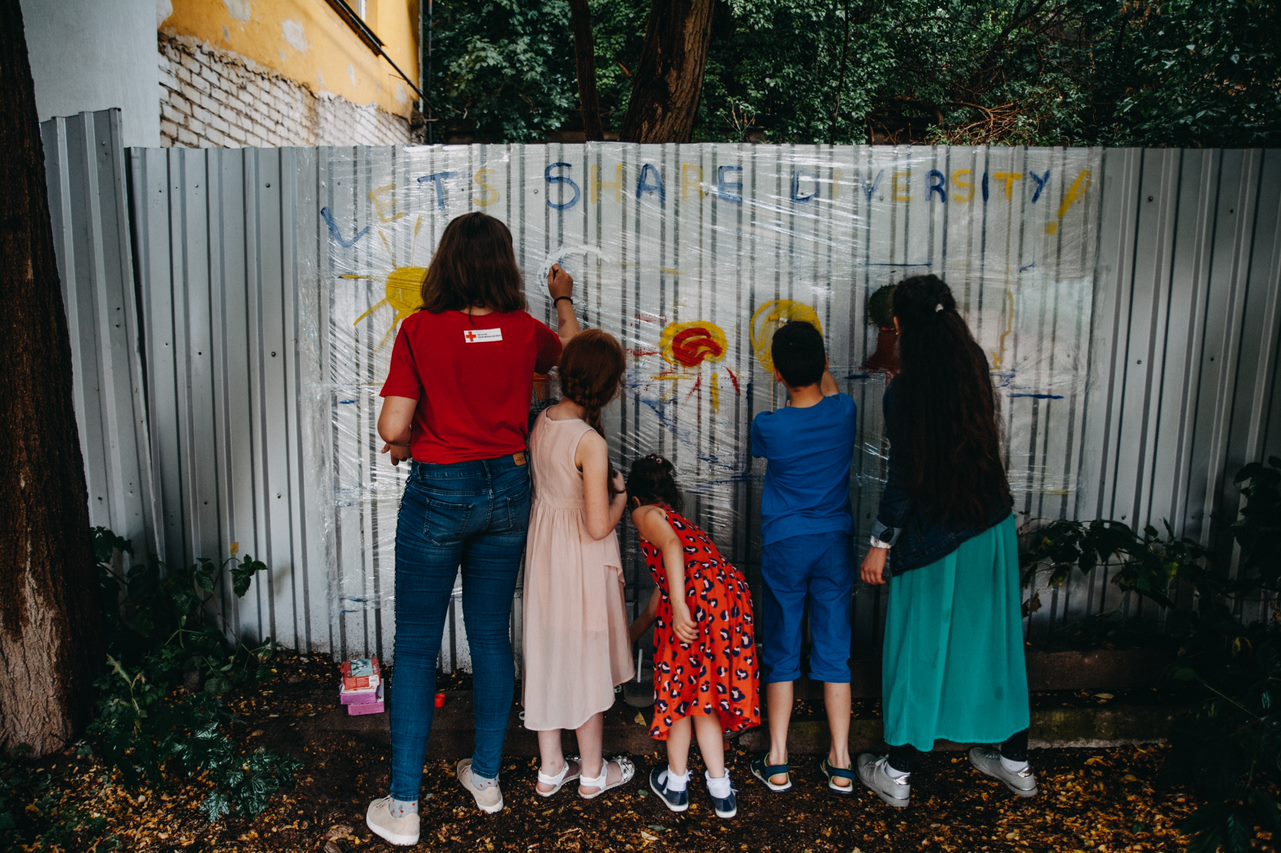Help and protection for migrants at Lithuanian borders: "I see a family member in you"
“When we arrived, I didn't really understand much. Our family was missing everyday things,” said an Afghan refugee after he was granted asylum with support from Lithuanian Red Cross teams working at the borders. “I felt confused about what would happen in the future. However, looking at your smile I thought there were good people living here, so one day we would be fine as well.”
In recent years, the European Union (EU) and its Member States have prioritised the reduction of migrants’ irregular entry and stay by reinforcing external border controls and intensifying administrative detention as a form of migration management. Asking for asylum at the borders should come with certain safeguards for the migrants, but detention is becoming the norm instead of being an exceptional measure.
Immigration detention increases the vulnerability of individuals, with negative and long-lasting effects on the well-being and health of migrants. It is therefore important to ensure that work at the borders complies with particular standards. In the case of Lithuania, there is growing concern about the prolonged procedures at the borders, extended from 72 hours to a period of 14 to 28 days, as reception conditions, such as providing hot meals and proper medical services, have not been adapted to this.

According to national authorities, in 2019, 68% of the 649 asylum applications country-wide were lodged at border crossing points. Most of the people were from Russia (46,2%) and Tajikistan (37,8%), followed by Azerbaijan, Afghanistan, Turkey and Syria.
The Lithuanian Red Cross plays a key role in enhancing the protection of asylum seekers at the borders. Since 2010, thanks to an agreement with the State’s border guard services and the United Nations’ High Commissioner for Refugees (UNHCR), its teams monitor reception conditions as well as of the appropriate implementation of asylum procedures. Special procedures and guarantees for the most vulnerable (including children, pregnant women or girls, people with disabilities or at risk of violence due to their sexual orientation) are always the key priority at the borders and in refugee camps. All these activities are vital to ensure the necessary protection safeguards for people who apply for asylum at border crossing points, where they are obliged to reside without freedom of movement for the entire duration of their claim examination. On the basis of their direct observations, qualified staff elaborate confidential reports and recommendations that are shared and discussed with authorities.
In addition, the Lithuanian Red Cross organises trainings for guard officers on how to interact with migrants at the border during the first 72 hours, before they Migration Department starts with the asylum procedure. Furthermore, they also contribute to courses organised by UNHCR on applicable international protection standards and the rights of asylum seekers. These are directed at judges and lawyers, especially those participating in the Government’s legal aid scheme.

In June 2020, the Lithuanian Red Cross signed an agreement with the State border guard service to expand its activities and deliver protection services and monitoring support to all migrants in detention, including at border crossing points. Different professionals offer humanitarian assistance to vulnerable migrants, including legal consultations, family reunification services, psychological support and suicide prevention sessions.
Regular meetings with national authorities allow for constant feedback on different activities. The ultimate goal? To help improve the situation at the borders, and to ensure services are offered in a timely and adequate manner, with a humane approach. According to a Chechen woman who benefited from legal assistance from a Lithuanian Red Cross staff member: “I see a family member in you.”
Basic information
Activity name
Monitoring and Assistance at the Border
Country
Lithuania
Duration
Ongoing since 2010
Partners
State’s border guard services and UNHCR

